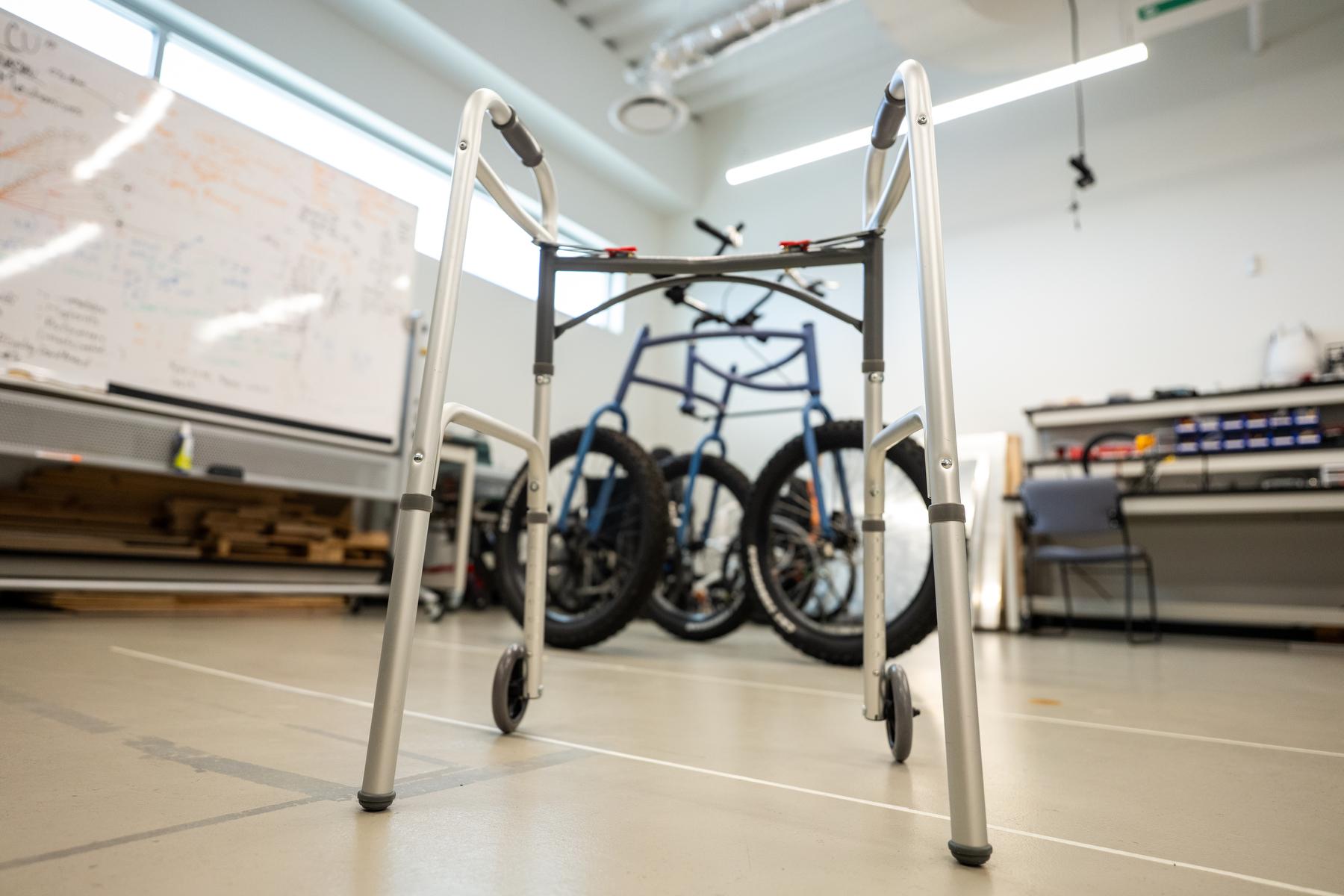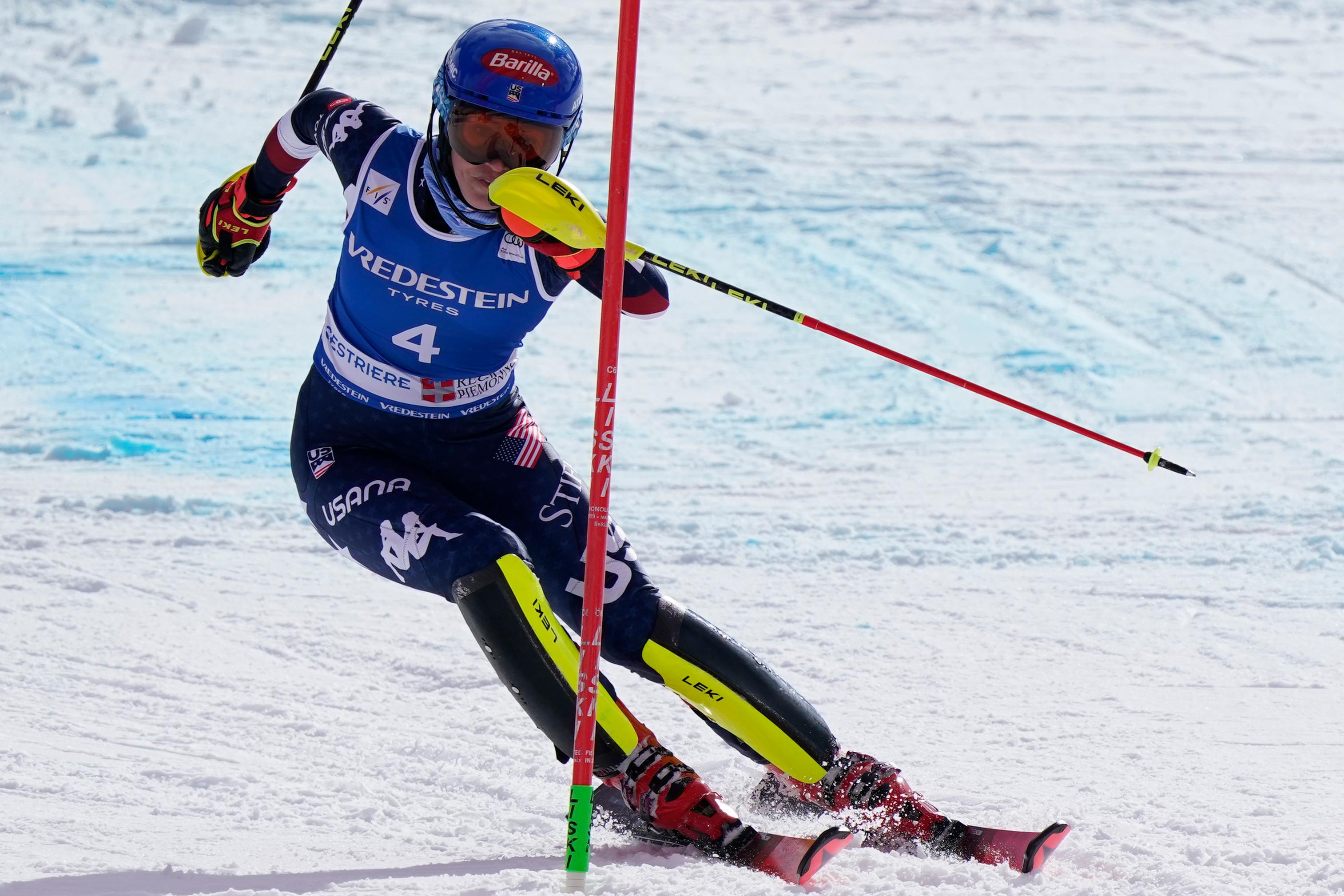
Many older people would rather risk falling than use walkers, those metal contraptions that lend stability to people who struggle with balance. Walkers are deemed so ugly, and come with so much stigma that up to half of the people who need one say, “No thanks, I’ll take my chances.”
But what if you could build a walker that’s elegant, cool, and maybe even sexy?
That’s what a group of innovators at the University of Colorado has set out to do.
“I mean, I look at this generation of older adults,” said Cathy Bodine, director of the Center for Innovative Design in Engineering. “They put a man on the moon. They invented the internet. They invented computers, for heaven's sake. These people are smart and they know what they want.”
What they want, she said, is a mobility product that looks good and doesn’t make them feel vulnerable. Current walkers aren’t measuring up.
“We did a national survey of over 3,300 respondents. And what we learned is, it's all about stigma,” she explained. “‘It makes me look old. It makes me feel old. I'm afraid I'll get mugged on the street. It's really unattractive and I don't like how it makes me feel inside.’”

The consequences are real.
“We spend $80 billion a year in Medicare costs for people who fall,” Bodine said. “And every 19 minutes someone dies from a fall. And so I want to change those metrics.”
The CIDE lab, which is located on the CU-Anchutz campus in Aurora, teamed up with designers from the Italian firm Pininfarina, known for styling cars for Ferrari and Maserati. The result, a product called that features a sleeker black frame, aeronautical-style wheels, and stitched leather handles.

The improvements go beyond style. Many walkers are nearly impossible to fold, making them hard to fit in the trunk of a car. And forget taking it down an airplane aisle - they are too wide.
“We are designing this so that it can be foldable and fit in an overhead bin on an airplane,” Bodine said.
A walker that people will actually use can help them stay healthier, longer. Bodine pointed out that gait speed, or how fast you walk, is increasingly called the “6th vital sign.”
“We also have been learning, just in the last few years, that the more mobile you are, the better your brain health,” Bodine said. “And I am all about preserving both: keeping people alive, but also keeping our brains as we get older. The old adage of ‘use it or lose it.’ Similarly, if we don't move, then that impacts our entire body.”

The CIDE lab envisions a diverse product line, including an all-terrain walker for the outdoorsy type: the “Afari” (Safari without the “s”), for exploring trails, beaches, or the backyard. The Afari prototype is a three-wheeled number in hot lavender with fat tires and handlebar brakes.
The lab has taken to calling it “sexy.” That gets people’s attention.

“The interest level goes right through the roof,” laughed Bodine. “One thing I learned in all of these interviews is, third grade never dies. It just doesn't. People want to look good. They want to feel good.”
The university has an office called CU Innovations that is tasked with getting inventions like these to market. Because the university has provided the laboratory and seed capital, CU pockets most of the profits. About 25 percent is reserved for the inventors.

“And there’s generally a large list of inventors,” Bodine said. “So you don't necessarily get rich from your work financially. You get your rewards in knowing that maybe you saved a life or you kept someone out of the hospital.”
Bodine said she is targeting production by 2027.
| This story is a part of Aging Matters, a series from Colorado Matters about the Centennial State's aging population. Read more stories here. |








